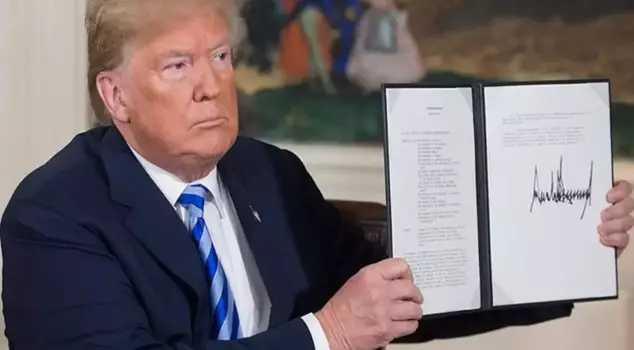
25.01.2025 19:01
As soon as he took office, U.S. President Donald Trump, who initiated significant policy changes, nearly halted all foreign aid. Only emergency food assistance to certain countries and military support for Israel and Egypt will continue.
With the inauguration ceremony held on January 20 in the United States, President Donald Trump, who officially took office, froze nearly all foreign aid.
INCONSISTENT WITH PRESIDENT TRUMP'S FOREIGN POLICY
In a letter sent by the country's new Secretary of State Marco Rubio to the relevant institutions, it was also stated that no new aid programs would be initiated. In his letter justifying the freeze decision, Rubio noted that the previous administration's existing foreign aid commitments were "inconsistent with President Trump's foreign policy."
AID TO UKRAINE ALSO STOPPED
Thus, aid sent by the U.S. to various countries, ranging from development support to military assistance, has been put on hold. This includes military aid to Ukraine, which is at war with Russia. Additionally, funds provided to developing countries for the fight against HIV have also been cut. It was reported that emergency food aid provided by the U.S. to some countries would continue.
ONLY TWO COUNTRIES EXEMPTED
On the other hand, two countries were exempted from the decision to halt foreign aid. Washington will continue its military assistance to Israel, which continues to pour weapons into the massacre in Gaza. Additionally, defense support to Egypt, which signed a peace agreement in 1979, will also continue.
MILLIONS OF PEOPLE IN NEED OF THIS AID
The decision sparked reactions from humanitarian aid organizations and the Democratic Party. It was noted that millions of people around the world rely on humanitarian aid sent by the U.S. to survive, and the cessation of medical assistance could lead to deaths in some regions. The U.S. had provided $64 billion in aid abroad in 2023.
WHAT HAPPENED?
Immediately after taking office, U.S. President Donald Trump signed an executive order regarding foreign aid. The order stated that all ministries and agencies responsible for U.S. foreign development aid programs would cut payments to foreign countries, and a 90-day review period was initiated to assess the program's alignment with U.S. foreign policy.